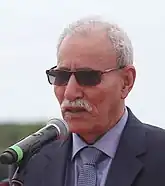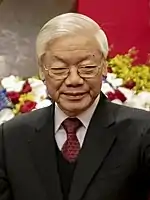One-party state
A one-party state, single-party state, one-party system or single-party system is a governance structure in which only a single political party controls the ruling system.[1] All other parties are either outlawed or only enjoy limited and controlled participation in elections. Sometimes the term "de facto one-party state" is used to describe a dominant-party system that, unlike the one-party state, allows (at least nominally) democratic multiparty elections, but the existing practices or balance of political power effectively prevent the opposition from winning power.
 | |||||
| Systems of government | |||||
|---|---|---|---|---|---|
|
| Part of the Politics series |
| Party politics |
|---|
|
|
Although it is predated by the 1714 to 1783 "age of the Whig oligarchy" in Great Britain,[2] the rule of the Committee of Union and Progress (CUP) over the Ottoman Empire following the 1913 coup d'état is often considered the first one-party state.[3]
Current one-party states
As of 2023 the following countries are legally constituted as one-party states:
Concept
One-party states justify themselves through various methods. Most often, proponents of a one-party state argue that the existence of separate parties runs counter to national unity. Others argue that the one party is the vanguard of the people, being its most politically aware members, and therefore the party's right to rule cannot be legitimately questioned. The Soviet government argued that the existence of multiple political parties would perpetuate class struggle, so only a single party could lead a classless proletariat; it therefore made the Communist Party of the Soviet Union the only authorised political party.
Conversely, Russian historian Vadim Rogovin attributed the establishment of the one-party system to the conditions which were “imposed on Bolshevism by hostile political forces”. Rogovin highlighted the fact that the Bolsheviks made strenuous efforts to preserve the Soviet parties such as the Socialist-Revolutionaries, Mensheviks, and other left parties within the bounds of Soviet legality and their participation in the Soviets on the condition of abandoning armed struggle against the Bolsheviks.[10]
Some one-party states only outlaw opposition parties, while allowing allied parties to exist as part of a permanent coalition (such as a popular front). However, these allied parties are largely or completely subservient to the ruling party and must accept the ruling party's monopoly of power as a condition of their existence. Examples of this are the National Front in former East Germany and the Democratic Front for the Reunification of Korea in North Korea. Other states outlaw all other parties yet allow non-party members to run for legislative seats as independents, as was the case with Taiwan's Tangwai movement in the 1970s and 1980s, as well as the elections in the former Soviet Union. Still others have only a single legal party, membership of which is a prerequisite for holding public office, such as in Turkmenistan under the rule of Saparmurat Niyazov or Zaire under Mobutu Sese Seko.
Within their own countries, dominant parties ruling over one-party states are often referred to simply as the Party. For example, in reference to the Soviet Union, the Party meant the Communist Party of the Soviet Union; in reference to the pre-1991 Republic of Zambia, it referred to the United National Independence Party.
Most one-party states have been ruled by one of the following:
- A party which supports the ideology of Marxism–Leninism and vanguardism (sometimes described as "communist states", such as the Soviet Union)
- A party which supports a nationalist or fascist ideology (such as the Kingdom of Italy under the National Fascist Party or Germany under the Nazi Party)
- A party that came to power in the wake of independence from colonial rule. One-party systems often arise from decolonization because a single party gains an overwhelmingly dominant role in liberation or in independence struggles.
With such a small winning coalition, leaders in One-Party states lack the incentive to care about the well-being of citizens.[11] Rather, they give out private goods to fellow elites to ensure continued support. One-Party, compared to Dominant-party dictatorships, structure themselves unlike democracies. They also turn into democracies at a lower rate than Dominant-party dictatorships.[12] While One-Party states prohibit opposition parties, some allow for elections at the smallest local level. One-Party states lack any legitimate competition. Therefore, they place elites and sympathetic candidates in key administrative races.[13] For example, The Chinese Communist Party exercises political control by infiltrating village administrations.[14] They view these positions as crucial for gathering information on the population and maintaining a presence in the far reaches of their borders.[15] One-Party states recognize the trade-off between election victory and gathering valuable data.[16] To account for this, the regimes have been observed placing local nobility in easy to win races.[17] One-Party states have also been observed using elections to ensure that only the most popular elites get chosen to office.[18] They also gather data from elections to indicate if a local official is performing poorly in the eyes of the residents.[18] This gives locals the opportunity to monitor local officials and communicate satisfaction with the local government.[18] Throughout the country, members of the one party hold key political positions.[12] In doing so, the party avoids committing outright fraud and rather sustains their power at the local level with strategic appointment of elites.[15] It is also worth noting that it is difficult to gather clear data on these regimes, given their private nature.[13]
One-party states are usually considered to be authoritarian,[19] to the extent that they are occasionally totalitarian. On the other hand, not all authoritarian or totalitarian states operate upon one-party rule. Some, especially amongst absolute monarchies and military dictatorships, have no need for a ruling party, and therefore make all political parties illegal.
De facto one-party states
A de facto one-party system is one that, while not officially linking a single political party to governmental power, utilizes some means of political manipulation to ensure only one party stays in power.[20] Many different countries have been claimed to be de facto one-party states, with differing levels of agreement between scholars, although most agree that the African continent is marked by this political system.[21][22] Below are just a few examples of governments that have been claimed to have single party rule due to political manipulation.
| Country | Party | Date of
establishment |
Information |
|---|---|---|---|
| People's Movement for the Liberation of Angola | 11 November 1975 | The MPLA has ruled Angola since its declaration of independence from Portugal, starting as a de jure one-party state, and declaring multipartyism in 1991 | |
| Congolese Party of Labour | 31 December 1968 | The People's Republic of the Congo was a one-party state, until the establishment of multipartyism in 1990 and the subsequent loss of the PCT, leading to a civil war in 1997, from which point the PCT has been the sole ruling party since. | |
| Democratic Party of Equatorial Guinea | 11 October 1987 | Despite not having any constitutional relation between the government and the PDGE, there is a link between the 1982 constitution and Theodoro Obiang, leader of the PDGE, leading Equatorial Guinea since 1979, and having won every election by at least 92% approval, with all "opposition" parties adamantly supporting Obiang, and never holding more than 32% of seats in any house. | |
| People's Action Party | 30 May 1959 | The PAP is currently the longest ruling party in the world. While it does not have much electoral controversy, the PAP is essentially linked to governance in Singapore. | |
| Liberal Democratic Party | 15 November 1955 | After the signing of the Treaty of San Francisco, the estranged right wing parties began gaining power, and with incentives from the CIA,[23] they formed the LDP, counteracting the formation of the JSP, establishing the 1955 System (also known as the One and a Half Party System), in which the LDP has ruled in all but 4 years. | |
| Institutional Revolutionary Party | 4 March 1929 | While not continually in power, the PRI has allegedly bought votes and actively disrupted opposition parties in order to stay in power. The PRI held uninterrupted power for 71 years, from 1929 to 2000, but its power has since dwindled and the de facto one-party system in Mexico disappeared. | |
| Unity (1999-2001) and United Russia (2001-) | Between 2000 and 2005 | After the formation of the Russian Federation, the CPRF quickly became the dominant party in the State Duma and Federation Council. The party slowly lost their power through the 1990s with the growing power of smaller conservative powers, developing into Russian parties of power, being directly associated with the concept of governance through Russian oligarchism. United Russia, led by former president Dmitry Medvedev, is not affiliated directly with Vladimir Putin (who serves as an independent), but directly supports him through the All-Russia People's Front, holding a good majority in the State Duma and the Federation Council since 2003. | |
| Rwandan Patriotic Front | In power since 1994 | Although Rwanda is nominally democratic, elections are manipulated in various ways, which include banning opposition parties, arresting or assassinating critics, and electoral fraud.[24][25] |
Former one-party states
See also
Notes
- The Republic of China controlled the mainland from 1912 to 1949 and the island of Taiwan since 1945, in which the ROC currently administers the Free area. This government served China in the United Nations from 1945 to 1971. See Political status of Taiwan and the One-China policy for various viewpoints.
- Following the appointment of Marcelo Caetano as Prime Minister in 1968, the opposition was allowed to run to the 1969 Portuguese legislative election, before being banned.
Further reading
- Angiolillo, Fabio (2023). "Introducing the One-Party Membership Dataset: A dataset on party membership in autocracies". Journal of Peace Research
References
- Clark, William Roberts; Golder, Matt; Golder, Sona Nadenichek (23 March 2012). Principles of Comparative Politics. SAGE. p. 611. ISBN 9781608716791.
- Holmes, Geoffrey; and Szechi, D. (2014). The Age of Oligarchy: Pre-Industrial Britain 1722–1783. Routledge. p. xi. ISBN 131789426X. ISBN 978-1317894261.
- Bozarslan, Hamit (2019). "Afterword: Talaat's Empire: A Backward Country, but a State Well Ahead of Its Time". End of the Ottomans - The Genocide of 1915 and the Politics of Turkish Nationalism. I. B. Tauris. p. 330. ISBN 978-1-7867-3604-8.
- "China", The World Factbook, Central Intelligence Agency, 26 January 2023, retrieved 5 February 2023
- Roman, Peter (2003). People's Power: Cuba's Experience with Representative Government. Rowman & Littlefield. ISBN 0-7425-2564-3.
- "Eritreans hope for democracy after peace deal with Ethiopia". BBC News. 17 July 2018. Retrieved 5 February 2023.
- "Laos: Freedom in the World 2020 Country Report". Freedom House. Retrieved 5 February 2023.
- "North Korea: Country Profile". Freedom House. Retrieved 5 February 2023.
- "Vietnam: Country Profile". Freedom House. 30 March 2022. Retrieved 5 February 2023.
- Rogovin, Vadim Zakharovich (2021). Was There an Alternative? Trotskyism: a Look Back Through the Years. Mehring Books. pp. 13–14. ISBN 978-1-893638-97-6.
- Hanson, Stephen E. (2009), "The Contribution of Area Studies", The SAGE Handbook of Comparative Politics, 1 Oliver's Yard, 55 City Road, London EC1Y 1SP United Kingdom: SAGE Publications Ltd, pp. 159–174, doi:10.4135/9780857021083.n10, ISBN 9781412919760, S2CID 184118662, retrieved 4 March 2023
{{citation}}: CS1 maint: location (link) - Magaloni, Beatriz; Kricheli, Ruth (1 May 2010). "Political Order and One-Party Rule". Annual Review of Political Science. 13 (1): 123–143. doi:10.1146/annurev.polisci.031908.220529. ISSN 1094-2939.
- Creak, Simon; Barney, Keith (10 August 2018). "Conceptualising Party-State Governance and Rule in Laos". Journal of Contemporary Asia. 48 (5): 693–716. doi:10.1080/00472336.2018.1494849. ISSN 0047-2336. S2CID 158403649.
- Hassan, Mai; Mattingly, Daniel; Nugent, Elizabeth R. (12 May 2022). "Political Control". Annual Review of Political Science. 25 (1): 155–174. doi:10.1146/annurev-polisci-051120-013321. ISSN 1094-2939.
- MALESKY, EDMUND; SCHULER, PAUL (26 October 2011). "The Single-Party Dictator's Dilemma: Information in Elections without Opposition". Legislative Studies Quarterly. 36 (4): 491–530. doi:10.1111/j.1939-9162.2011.00025.x. ISSN 0362-9805.
- Frantz, Erica. Authoritarianism : what everyone needs to know. ISBN 978-0-19-756964-1. OCLC 1202872902.
- Frantz, Erica. Authoritarianism : what everyone needs to know. ISBN 978-0-19-756964-1. OCLC 1202872902.
- Gandhi, Jennifer; Lust-Okar, Ellen (1 June 2009). "Elections Under Authoritarianism". Annual Review of Political Science. 12 (1): 403–422. doi:10.1146/annurev.polisci.11.060106.095434. ISSN 1094-2939.
- "One-Party States | Encyclopedia.com". www.encyclopedia.com. Retrieved 21 February 2023.
- McLean, Iain; McMillan, Alistair (2009). "One-Party State". Oxford Reference. doi:10.1093/acref/9780199207800.001.0001. ISBN 978-0-19-920780-0. Retrieved 27 August 2023.
- Ziemer, Klaus (1995), Kirk-Greene, Anthony; Bach, Daniel (eds.), "The African One-Party State", State and Society in Francophone Africa since Independence, St Antony’s/Macmillan Series, London: Palgrave Macmillan UK, pp. 97–105, doi:10.1007/978-1-349-23826-2_7, ISBN 978-1-349-23826-2, retrieved 27 August 2023
- Mitchinson, Naomi (January 1984). "One party rule in Africa". The Round Table. 73 (289): 38–44. doi:10.1080/00358538408453617. ISSN 0035-8533.
- Kapur, Nick (6 August 2018). Japan at the Crossroads: Conflict and Compromise after Anpo. Harvard University Press. p. 10. ISBN 978-0-674-98848-4.
- Thomson, Susan (2018). Rwanda: From Genocide to Precarious Peace. Yale University Press. p. 185. ISBN 978-0-300-23591-3.
- Ph.D, Joseph Sebarenzi; Twagiramungu, Noel (8 April 2019). "Rwanda's economic growth could be derailed by its autocratic regime". The Conversation. Retrieved 5 September 2023.
- Afghanistan: A Country Study. Claitor's Law Books and Publishing. 2001. ISBN 978-1-57980-744-3.
- "Afghanistan 1977". Princeton University. Archived from the original on 6 April 2012.
- British Documents on Foreign Affairs. Reports and Papers from the Foreign Office Confidential Print: Burma, Ceylon, India and Pakistan. Volume 7. October 1947-December 1948. University Publications of America. 2001. p. 45. ISBN 155655768X.
- British Documents on Foreign Affairs. Reports and Papers from the Foreign Office Confidential Print: Burma, Ceylon, India and Pakistan. Volume 7. October 1947-December 1948. University Publications of America. 2001. p. 45. ISBN 155655768X.
- Mokam, David (2012). "The Search for a Cameroonian Model of Democracy or the Search for the Domination of the State Party: 1966-2006". Cadernos de Estudos Africanos (23): 85–108. doi:10.4000/cea.533.
- Vehesh, M. M.; Palinchak, M. M.; Marchuk, V. V.; Kontsur-Karabinovych, N. M. (2020). Carpathian Ukraine in the Central European political crisis on the eve of World War II (1938-1939): collective monograph (PDF). Liha-Pres. pp. 21, 22, 24. ISBN 9789663972121. Archived from the original (PDF) on 24 May 2023.
- Токар, М. (2004). "Становлення партійної монополії Українського Національного Обʼєднання" (PDF). Науковий вісник Ужгородського університету. Серія: Історія (11): 105–112. Archived from the original (PDF) on 24 May 2023.
- Токар, М. (2004). "Становлення партійної монополії Українського Національного Обʼєднання" (PDF). Науковий вісник Ужгородського університету. Серія: Історія (11): 106. Archived from the original (PDF) on 24 May 2023.
- Central African Republic Unions Strike for Democracy 1990-1993
- Schneiderman, Harry (1938). "Danzig". The American Jewish Year Book. 40: 226–228. JSTOR 23602316.
- Hepburn, A. (7 April 2004). Contested Cities in the Modern West. Springer. ISBN 978-0-230-53674-6.
- Delzell, Charles Floyd (18 June 1971). Mediterranean Fascism 1919–1945. Springer. ISBN 978-1-349-00240-5.
- MacKinnon, Stephen R. (2007). China at War: Regions of China, 1937-45. Stanford University Press. ISBN 978-0-8047-5509-2.
- Bozarslan, Hamit (2019). "Afterword: Talaat's Empire: A Backward Country, but a State Well Ahead of Its Time". End of the Ottomans - The Genocide of 1915 and the Politics of Turkish Nationalism. I. B. Tauris. p. 330. ISBN 978-1-7867-3604-8.
- 12th Period - Second Republic of Portugal
- Raby, D. L. (1988). Fascism and Resistance in Portugal: Communists, Liberals and Military Dissidents in the Opposition to Salazar, 1941-1974. Manchester University Press. ISBN 978-0-7190-2514-3.
- Henderson, Jane (4 May 2011). The Constitution of the Russian Federation: A Contextual Analysis. Bloomsbury Publishing. ISBN 978-1-84731-648-6.
- Kumar, Kundan (2003). Ideology And Political System. Discovery Publishing House. ISBN 978-81-7141-638-7.
- Law 21/1976, of 14 June, on the Right of Political Association.
- "Presidential Decree on Syria's New Constitution". Syrian Arab News Agency. 28 February 2012. Retrieved 14 March 2012.
- Chulov, Martin (27 February 2012). "Syrian regime rockets bombard Homs". The Guardian. Guardian News and Media. Retrieved 14 March 2012.
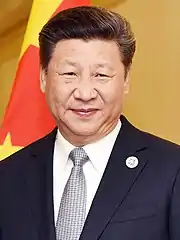
.jpg.webp)
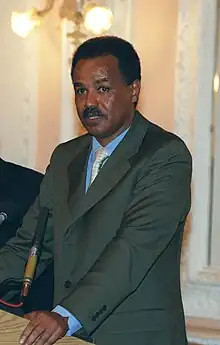
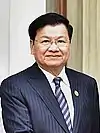
.jpg.webp)
